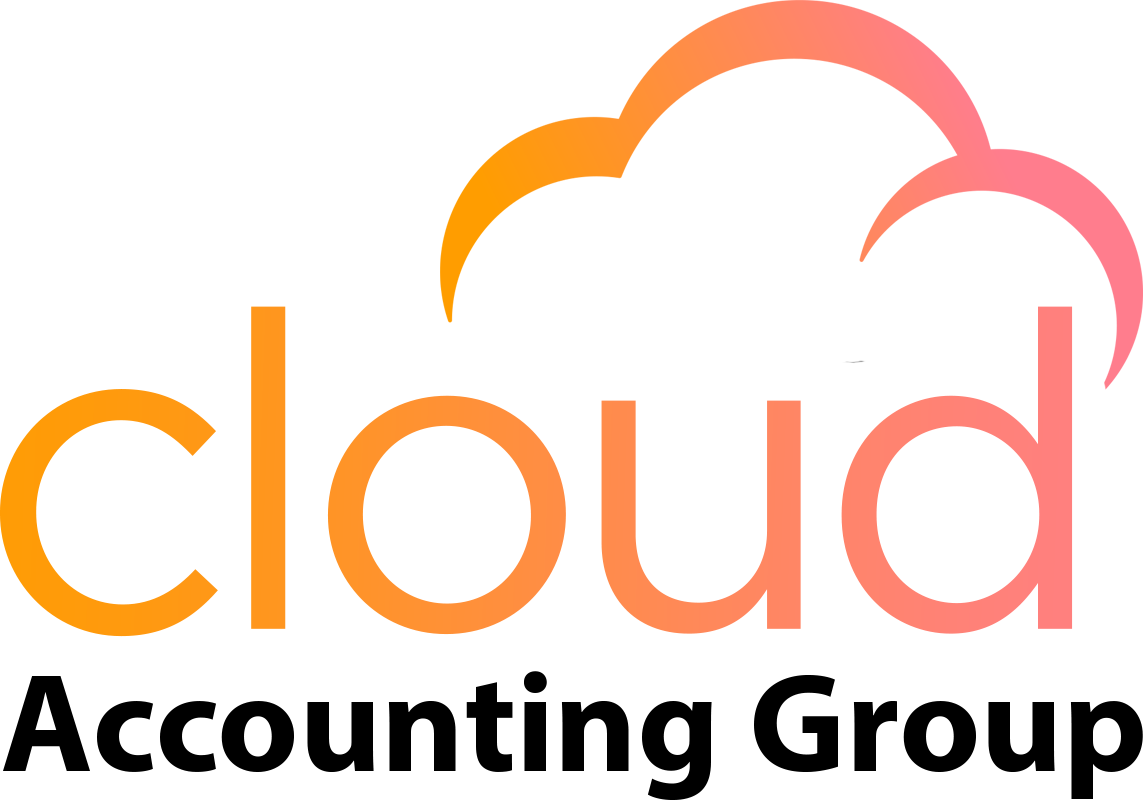Real estate investment can be one of the most rewarding financial paths you’ll ever take. It’s also, without question, one of the most challenging when tax season arrives. If you’ve ever stayed up late wondering if you’re maximizing your deductions or worrying about an audit, this post is for you.
The first thing to know is that the tax code offers real estate investors numerous advantages– but only if you know how to use them. At CloudCPA, we’ve spent over 15 years helping investors navigate these complexities and turn tax headaches into strategic opportunities.
Let’s explore the key tax planning strategies that can help you minimize liabilities, maximize deductions, and approach tax season with confidence rather than dread.
Understanding Real Estate’s Unique Tax Advantages
Real estate investing comes with tax benefits that other investment types simply don’t offer. The most significant advantage? The classification of rental income as passive income.
Unlike earned income from a W-2 job or self-employment, passive income isn’t subject to FICA taxes (Social Security and Medicare taxes) – an immediate savings of 15.3% over earned income.
Real estate is particularly powerful because it can generate positive cash flow while simultaneously creating a paper loss for tax purposes. Here’s what that looks like…
Let’s say you purchase a property for $250,000. After operating expenses, mortgage payments, and other costs, you have a positive cash flow of $3,000 annually.
However, when you factor in depreciation (more on that soon), you might show a $2,000 loss on your tax return. You’re literally putting money in your pocket while reducing your taxable income.
This unique dynamic is why so many successful investors build wealth through real estate– it’s not just about the appreciation or the monthly income, but also the significant tax advantages that compound over time.
What Expenses Can I Deduct on My Rental Property?
One of the most immediate ways to reduce your tax burden is by properly tracking and deducting all eligible expenses. Many investors miss out on valuable deductions simply because they’re unaware of what qualifies.
Here’s a comprehensive breakdown of deductible expenses.
Property-Related Expenses
- Property taxes
- Insurance premiums
- Property management fees
- Homeowner association (HOA) fees
- Utilities you pay for
- Landscaping and maintenance
- Trash removal and cleaning services
Mortgage and Financing Costs
- Mortgage interest (not principal payments)
- Loan origination fees (typically amortized over the loan term)
- Points paid on loans
- Private mortgage insurance
Professional Services
- Legal fees related to your property
- Accounting and bookkeeping services
- Property inspection costs
- Appraisal fees
Travel and Transportation
If you personally manage your properties, you can deduct:
- Mileage for property-related travel
- Airfare, hotels, and meals when visiting out-of-town properties
- Local transportation costs
Home Office
If you regularly use part of your home exclusively for managing your rental activities, you may qualify for a home office deduction that includes:
- Portion of rent or mortgage interest
- Utilities
- Insurance
- Repairs to the office space
A common area of confusion is distinguishing between repairs and improvements. Repairs maintain your property in good working condition and are fully deductible in the year you incur them—think fixing a leaky faucet or repairing a broken window.
Improvements, on the other hand, add value to the property or extend its life and must be depreciated over time—like a new roof or kitchen renovation.
Keeping meticulous records is crucial here. We recommend using dedicated software or apps that track expenses specifically for real estate investors. This not only makes tax time easier but also helps identify patterns that can improve your overall profitability.
How Does Property Depreciation Reduce Taxable Income?
Depreciation is perhaps the most powerful tax benefit available to real estate investors, yet it’s often the least understood. Essentially, depreciation allows you to deduct the cost of your building over time. It acknowledges the unavoidable truth that structures deteriorate with age.
The IRS has determined that residential properties have a useful life of 27.5 years, while commercial properties depreciate over 39 years.
This means you can deduct a portion of your property’s value annually, even though you’re not actually spending that money.
Here’s how it works: When you purchase a property, you need to allocate the purchase price between the building and the land. Only the building portion can be depreciated since land doesn’t “wear out.”
For example, if you buy a rental property for $300,000, and $50,000 is allocated to land, you’ll be able to depreciate $250,000 over 27.5 years, resulting in a $9,090 annual deduction.
This depreciation deduction is why rental properties often show paper losses despite generating positive cash flow. It’s a non-cash expense that reduces your taxable income without affecting your actual cash in hand.
Cost Segregation Studies
To accelerate these benefits, many savvy investors use cost segregation studies. These detailed engineering-based analyses identify components of your property that can be depreciated over shorter periods—5, 7, or 15 years instead of 27.5.
For example, appliances, carpeting, and certain fixtures might qualify for 5-year depreciation, while land improvements like paving and landscaping often qualify for 15-year depreciation.
By front-loading these deductions, you can significantly reduce your tax liability in the early years of ownership.
When combined with the bonus depreciation provisions in the Tax Cuts and Jobs Act, cost segregation can be even more powerful. However, be aware that bonus depreciation is currently phasing out:
- 2024: 60% bonus depreciation
- 2025: 40% bonus depreciation
- 2026: 20% bonus depreciation
This makes 2025 a strategic year to consider property investments and cost segregation studies.
One final important detail: When you eventually sell the property, you’ll face depreciation recapture tax, which essentially taxes the accumulated depreciation at a rate of 25%.
However, the time value of money and potential investment of the tax savings typically outweigh this future liability.
Advanced Strategies for Minimizing Tax Liability
Beyond the basics of deductions and depreciation, there are several advanced strategies that can further reduce your tax burden. The key is understanding how these work together as part of a comprehensive tax plan.
Entity Structure Considerations
Many real estate investors wonder whether they should hold properties in their own name or create a business entity like an LLC or S Corporation. While LLCs don’t inherently provide tax benefits (contrary to what many “gurus” claim), they do offer liability protection and flexibility in how you’re taxed.
For investors with multiple properties or significant income, creating the right entity structure can provide opportunities for income splitting, expense optimization, and potential savings on self-employment taxes.
The ideal structure depends on your specific circumstances, including:
- Number of properties
- Income levels
- Whether you’re actively involved in management
- Your overall investment strategy
- Estate planning considerations
Timing of Income and Expenses
Strategic timing of income and expenses can make a substantial difference in your tax liability. For example:
- Prepaying property taxes or insurance in December to increase current-year deductions
- Delaying collecting rent until January to push income into the next tax year
- Grouping or “bunching” expenses in tax years where you’ll get the most benefit
- Making property improvements in years where your income is higher than usual
These strategies are especially valuable if your income fluctuates year to year or if you anticipate significant changes in your tax bracket.
Quarterly Estimated Tax Payments
If your rental income generates significant profit, you may need to make quarterly estimated tax payments to avoid underpayment penalties. This is particularly important for investors who don’t have taxes withheld from other sources of income.
The IRS expects you to pay taxes as you earn income throughout the year, not just at tax filing time. Working with a CPA who specializes in real estate can help determine whether you need to make these payments and in what amount.
How does a 1031 exchange defer capital gains taxes?
One of the most powerful wealth-building tools available to real estate investors is the 1031 exchange, named after Section 1031 of the Internal Revenue Code. This provision allows you to defer capital gains taxes when you sell an investment property and reinvest the proceeds in a “like-kind” property.
In practice, this means you can continuously upgrade your real estate portfolio without paying taxes on the gains along the way. The deferred taxes only come due when you eventually sell a property without doing another 1031 exchange.
Key Requirements for a Successful 1031 Exchange
To qualify for this tax deferral, your exchange must meet several specific requirements:
- Like-Kind Property: The replacement property must be of “like-kind” to the relinquished property. Fortunately, the IRS interprets this broadly for real estate – virtually any real property held for investment or business use qualifies.
- Strict Timelines: You must identify potential replacement properties within 45 days of selling your relinquished property, and you must close on the new property within 180 days.
- Qualified Intermediary: The proceeds from your sale must be held by a qualified intermediary (not you) until they’re used to purchase the replacement property.
- Equal or Greater Value: To defer 100% of your tax liability, the replacement property must be equal to or greater in value than the relinquished property.
- Investment Intent: Both the relinquished and replacement properties must be held for investment or business purposes (not as a primary residence or property primarily held for sale).
The power of 1031 exchanges becomes apparent when used over multiple transactions. By repeatedly deferring taxes, you keep more capital working for you, potentially accelerating your wealth-building by decades.
One common question is whether vacation rentals qualify for 1031 exchanges. The answer depends on how you use the property.
If it’s primarily a personal vacation home with minimal rental activity, it likely won’t qualify. However, if it’s genuinely held as an investment with limited personal use, it may be eligible.
Building Your Real Estate Tax Strategy
The strategies we’ve covered aren’t meant to be used in isolation. The most successful real estate investors develop comprehensive tax plans that incorporate multiple approaches tailored to their specific situations.
This is where working with a CPA who specializes in real estate becomes invaluable. Unlike general tax preparers who might see a handful of rental properties each year, specialists work with real estate investors daily and stay current on the ever-changing tax landscape.
At CloudCPA, we’ve helped countless real estate investors transform their tax situation. The key for all of them? Being proactive. Tax planning isn’t something you do in April– it’s an ongoing process that should inform your investment decisions throughout the year.
Here’s how to get started:
- Assess your current situation. Review your properties, entity structure, and recent tax returns to identify opportunities for improvement.
- Develop documentation systems. Create processes for tracking expenses, maintaining receipts, and documenting your real estate activities.
- Build your team. In addition to a specialized CPA, consider adding an attorney, insurance agent, and property manager who understand real estate investment.
- Create a multi-year plan. Look beyond the current tax year to develop strategies that maximize long-term wealth building.
- Stay educated. Tax laws change regularly, and new strategies emerge. Commit to ongoing education about real estate tax planning.
By implementing these strategies, you’ll not only reduce your current tax burden but also position yourself for sustainable, long-term wealth building through real estate investment.
Ready to take your real estate tax planning to the next level? Contact CloudCPA today for a discovery call. As real estate tax specialists, we’ll help you develop a custom strategy that aligns with your investment goals and maximizes your after-tax returns.

 CALL US NOW
CALL US NOW







